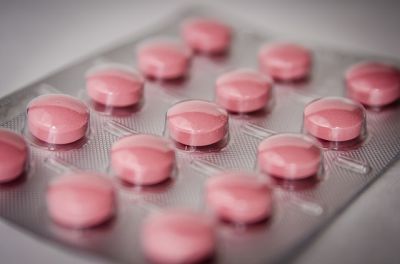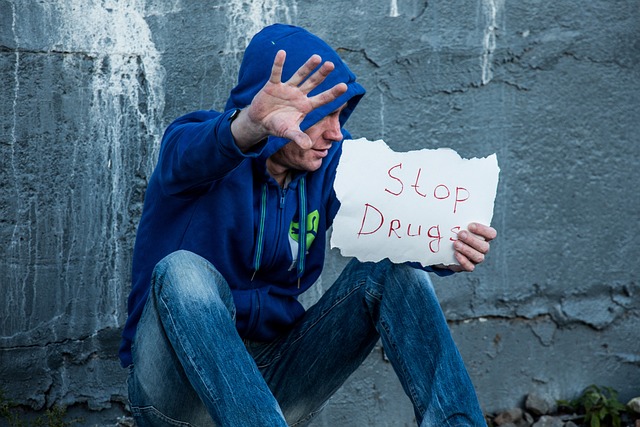The Life Changing Power Of Addiction Rehab In California
 Chronic drug addiction is characterized as compulsive or complicated drug seeking and consumption notwithstanding the negative effects.
Chronic drug addiction is characterized as compulsive or complicated drug seeking and consumption notwithstanding the negative effects.
Most people choose to take drugs freely at first, but repeated drug use may create brain changes that damage an addicted person’s ability to retain self-control and also prevent them from resisting intense drug urges.
In reality, these brain changes may be lengthy, hence why drug addiction is commonly considered to be a “reverting” illness: people in recovery from substance abuse disorders are at an increased risk of falling off the wagon though after decades of not using substances.
Receding from counseling is common, but it does not necessarily mean that treatment is unsuccessful.
Therapy and addiction rehab in California for chronic health conditions should be continual and customized to the individual person’s demands and reactions. Because patients’ needs vary over time, treatment plans must be reviewed and adjusted as needed.
Among the signs or behaviors associated with drug addiction are:
- Feeling compelled to consume the substance on a regular basis – daily or even many times each day
- Having tremendous cravings for the substance that overpower all other thoughts
- Over time, more of the narcotic is required to achieve the same effect.
- Taking more of the narcotic over a longer length of time than planned
- Ensuring that you have a steady supply of the drugs on hand
- Spending cash on the narcotic despite the fact that you cannot afford it
- Failure to satisfy duties and job responsibilities, or loss of social or leisure activities as a result of drug usage
- Continued usage of the substance while knowing it is producing difficulties in your life and causing you bodily or psychological damage
- Doing actions to obtain the narcotic that you would not ordinarily do, including stealing
- Driving or engaging in other high-risk activities and being under the effects of the substance
- Spending a significant amount of time obtaining the substance, using it, or recuperating from its consequences
- Attempts to quit taking the substances have failed.
- When you try to stop using the medicine, you may have withdrawal symptoms.
People use drugs for a variety of reasons, including:
To be happy
Drugs may cause tremendous pleasurable experiences.
This initial pleasure is followed by subsequent effects that vary depending on the kind of substance consumed.
The high from stimulants like cocaine, for example, is followed by sensations of control, self-confidence, and greater energy. In contrast, opioid euphoria (https://nida.nih.gov/drug-topics/opioids), such as heroin, is accompanied by a sense of calm and fulfillment.
To make oneself feel better
Some persons who suffer from anxiety, stress, or depression begin to use medications in order to feel less uneasy.
In people suffering from addiction, stress may have a significant role in initiating and maintaining drug use, as well as recurrence (return to drug use).
To improve
Some individuals are under pressure to increase their concentration at school or at work, or their athletic ability.
This may influence the decision to attempt or continue using substances such as stimulants or cocaine.
Curiosity and peer pressure
Teens are especially vulnerable in this regard since peer pressure may be quite powerful. For a definition and examples of peer pressure, click here.
Childhood is a developmental stage in which the existence of risk variables, such as drug-using classmates, may progress to substance use.

What’s the issue if using drugs helps individuals feel happy or better?
People may experience what appear to be beneficial notes when they first consume a medicine. They may also assume they have control over their usage.
However, narcotics have the ability to swiftly take over a human being’s life. If drug usage continues, other enjoyable activities will be less pleasurable over time, and the individual needs the drug merely to feel “normal.”
Even mild drug usage may be dangerous. Consider that a social drinker may get inebriated, get behind the steering wheel, and swiftly convert a fun pastime into a tragedy that claims many lives.
Occasional drug usage, such as taking an opioid to get euphoric, may have equally devastating consequences, such as impaired driving and fatality.
Some of the major signs of drug addiction are fairly easy to spot in friends and loved ones. Although there are many signs that point to drug abuse, the top 3 reported are as follows:
Catching your loved one in lies often
Because of the nature of addiction, individuals become furtive and lie. Nobody likes to tell their parents they are doing illegal substances. As a result, many addicts will begin to fib about their locations, how they spend their time, and where their money has gone.
This is intended to produce a false sense of normality and to keep inquisitive eyes at bay. If you observe a loved one becoming secretive or deceptive, it is likely that they are concealing something from you.
Significant weight fluctuations
Abuse of drugs and alcohol may result in significant weight changes. Many medications, including heroin and methamphetamine, reduce the appetite. If a loved one has dropped a substantial amount of weight despite training or having another justifiable cause, this is a clear indication that something is wrong.
Extreme exhaustion or laziness
Depressants cause significant drowsiness, often to the point of being unable to keep one’s eyes open. “Nodding off” (basically being so weary that they can hardly remain awake) in strange locations at unusual times is a typical sign of opiate misuse.
Stimulants, on the other hand, such as methamphetamine, may keep someone awake for days on end and then induce a collapse when they come down. It is not unusual for someone recovering from a drug binge to stay in bed for days at a time.
Do individuals continue to use drugs of their own volition?
The choice to start using drugs is usually voluntary. However, long-term usage may substantially weaken a person’s capacity to exercise self-control. Addiction is characterized by a loss of self-control.
Brain imaging studies of addicts reveal physical abnormalities in brain regions crucial to judgment, a judgment call, learning and memory, and perceived behavioral control. This is why addicts find rehab so beneficial in their recoveries.
Learning to live by a routine again, and setting up structure in their lives can be the difference in staying sober for many addicts.






